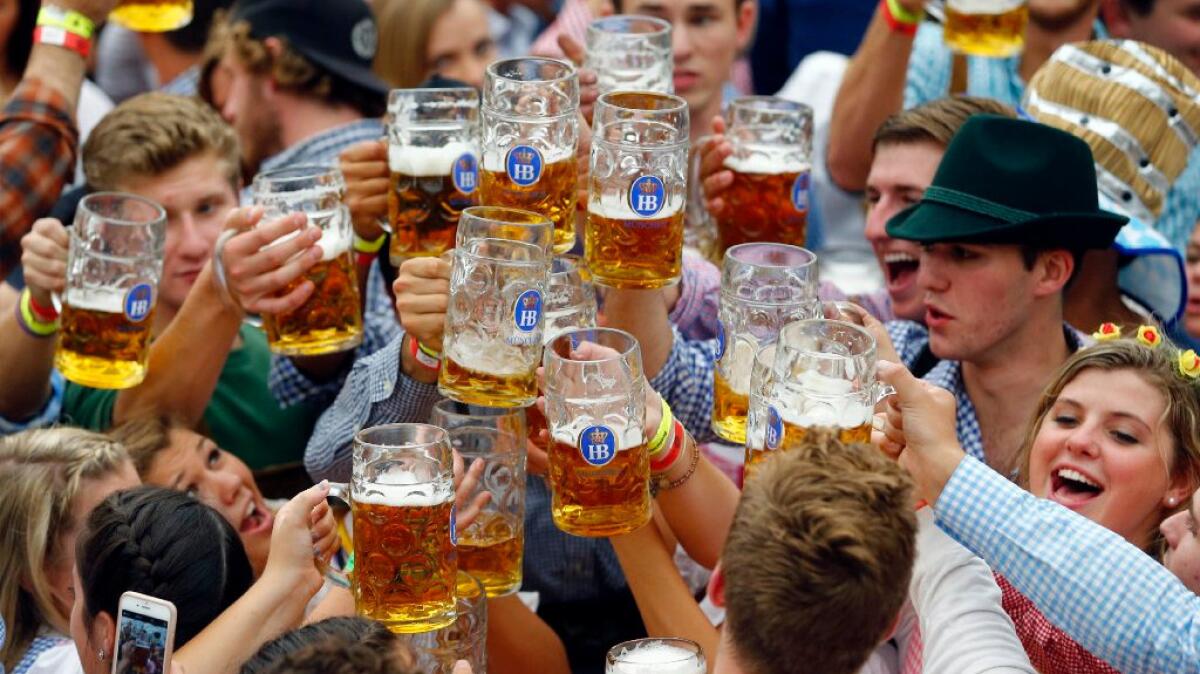What researchers learned about hook-up culture from volunteers who drank beer for the sake of science

- Share via
Why does drinking lead to hook-ups? One theory is that alcohol makes people feel more frisky. Another is that it simply causes people to let loose and act more impulsively, facilitating all kinds of behavior that would otherwise be considered inappropriate.
Swiss researchers designed a study to see if they could shed some light on the situation. They recruited 30 men and 30 women, offered them beer and subjected them to a series of psychological tests.
All of the study participants where white, in good mental health and between the ages of 18 and 50. (In addition, none of the women in the study were pregnant.)
All of the volunteers in the double-blind study took the battery of tests twice -- once after being served a glass of regular beer, and once after being served an equivalent amount of non-alcoholic beer.
See the most-read stories in Science this hour »
Though the volunteers might have been able to discern which beverage was the near beer and which was real deal, the researchers didn’t tip them off.
Here’s what they learned from the volunteers who drank beer for the sake of science:
- People were quicker to recognize happy faces when there was alcohol in their system.
- People had a greater desire to be in a “positive” social environment — such as a party — after consuming an alcoholic beer.
- Although oxytocin — the molecule some people know better as the “love hormone” — is known to produce effects like these, blood tests showed that alcohol had no affect on the volunteers’ oxytocin levels.
- People were somewhat put off by sexually explicit images after drinking the near beer — they rated the pictures “less pleasant than neutral pictures” — but not after drinking regular beer.
- Likewise, when people had an alcoholic buzz, they found sexually explicit images “more pleasant” than they did when the buzz was absent. This particular effect was particularly strong among women.
- There were no signs that alcohol enhanced “sexual arousal” in the volunteers.
Putting it all together, the researchers concluded that alcohol’s role as a social lubricant can be traced to its ability to facilitate “sexual disinhibition,” according to a report published Monday in the journal Psychopharmacology and presented at the European College of Neuropsychopharmacology meeting in Vienna.
The study was funded by University Hospital Basel, where the researchers work.
Follow me on Twitter @LATkarenkaplan and “like” Los Angeles Times Science & Health on Facebook
ALSO
Brain cancer overtakes leukemia as deadliest form of childhood cancer, CDC says
10,000 instances of distracted driving a day are due to ‘Pokemon Go’
6,000-year-old fabric reveals Peruvians were dyeing textiles with indigo long before Egyptians




